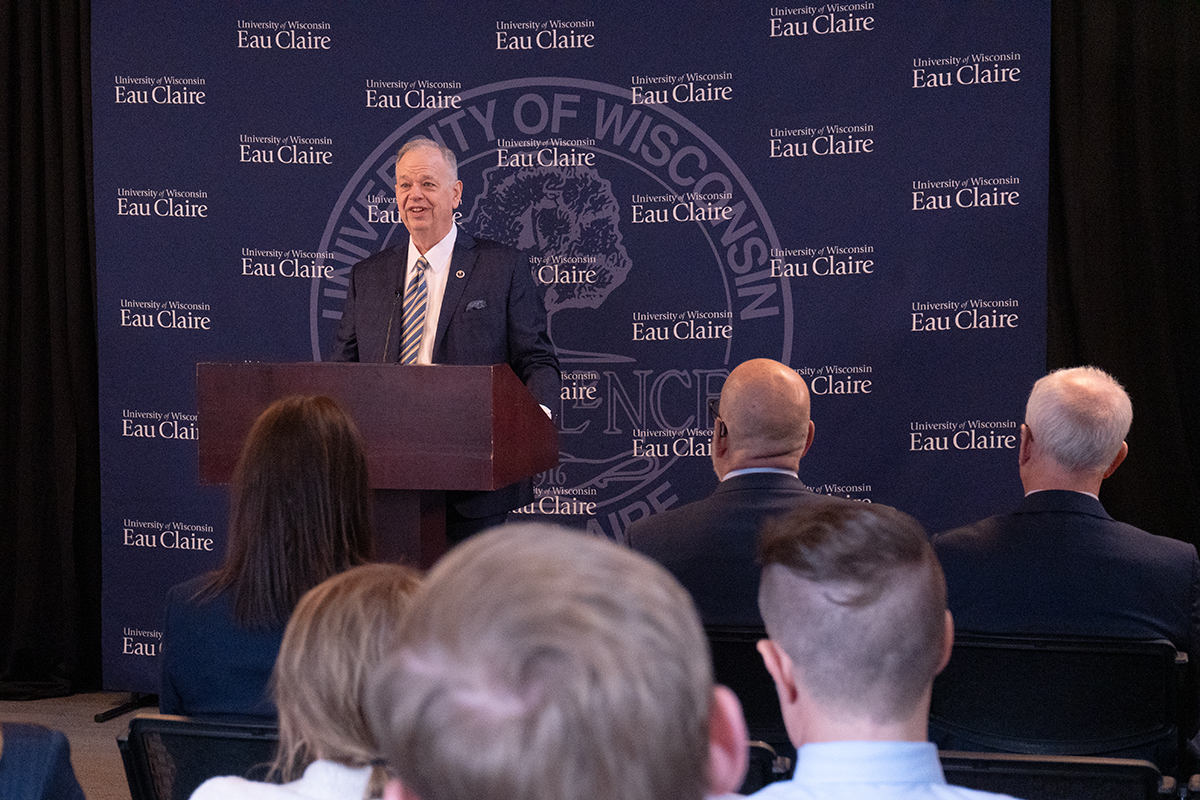 Janie Boschma
Janie BoschmaTwo years ago, in the wake of Hurricane Katrina, associate professor of mathematics Simei Tong knew there was something she could do.
To prevent further catastrophes resulting from being unprepared, Tong, aided by a team of students, employed mathematics as a tool in creating emergency disaster plans for Wisconsin’s Dane and Clark counties.
“Mathematics is not only beautiful by itself, it is very useful in real-life problem solving,” Tong said.
This past summer, Tong and her students designed an evacuation plan for the city of Owen in Clark County. Owen faces a significant threat of catastrophic flooding in the event of a break in the dam at nearby Sportsman Lake, Tong said.
Also, trains that routinely run through the community carry chemicals, presenting an additional threat to residents, she said.
“If you have a plan in place, and you have this accident or the flood situation, then you know how to evacuate the people,” Tong said.
She said the city’s emergency office needs to prepare for the number of buses necessary to evacuate residents as well as the cost of running a free shelter for those who have lost their homes.
Tong’s research concluded that 59 minutes is the minimum time required for Owen to be evacuated.
“It’s important to have a solid evacuation model when counties need to evacuate in order to prevent loss of life and property damage,” said junior Mitch Phillipson, a student of Tong’s who participated in the research.
Phillipson said he helped collect data from the area and used it to create an algorithm, a step-by-step problem-solving procedure, to find the shortest path from each area to the nearest shelter.
“I found the project very enlightening,” said Jennifer Lord-Kouraichi, Clark County emergency management director. “I never realized math could be used in such a way. It was neat to follow the project and I think it’s great to have the opportunity to work with the university that’s here in our area.”
Lord-Kouraichi said Tong’s plan helped Clark County officials figure out how they would evacuate the community in the event of a flood or train derailment.
Dane County was plagued with $49 million worth of damage over the course of three years due to flooding, Tong said.
Senior Cassie Lawler, a student of Tong’s who participated in the research, said she grew up in Dane County. She said residents pile sandbags around their homes to prevent water from seeping inside.
She and her father helped distribute the sand bags before the flooding occurred, although getting them out in time always became an issue, she said.
In 2005, Lawler measured the time and cost required to fill and distribute the sand bags.
“We wanted to minimize the cost of the distribution of sand bags plus the time,” Lawler said. “We wanted to get them out as soon as possible.”
The team then developed a mathematical transportation model detailing which distribution routes resulted in the minimum cost and time, Tong said.
Currently, Tong and her students are working on a new project in Jackson County. Divided by the Black River, flooding is a serious concern in the area. In the future, she said they plan to focus on Eau Claire County as well.
Tong said the team hopes to one day expand its research into big cities, and is currently working with the computer science department to develop user-friendly computer software that would allow its mathematical data to adapt to nearly any location.
Phillipson said one of the team’s main goals is to design models that can be applied anywhere.
“Even in the case of California recently, with the wildfires,” he said. “Really any natural disaster that requires evacuation, our model could be applied to.”






